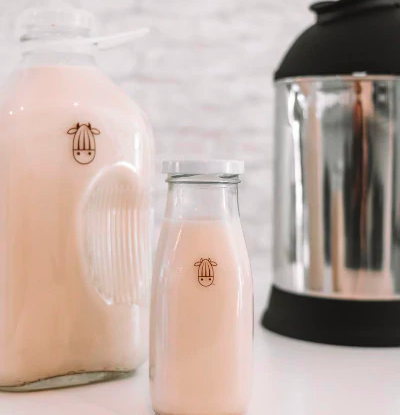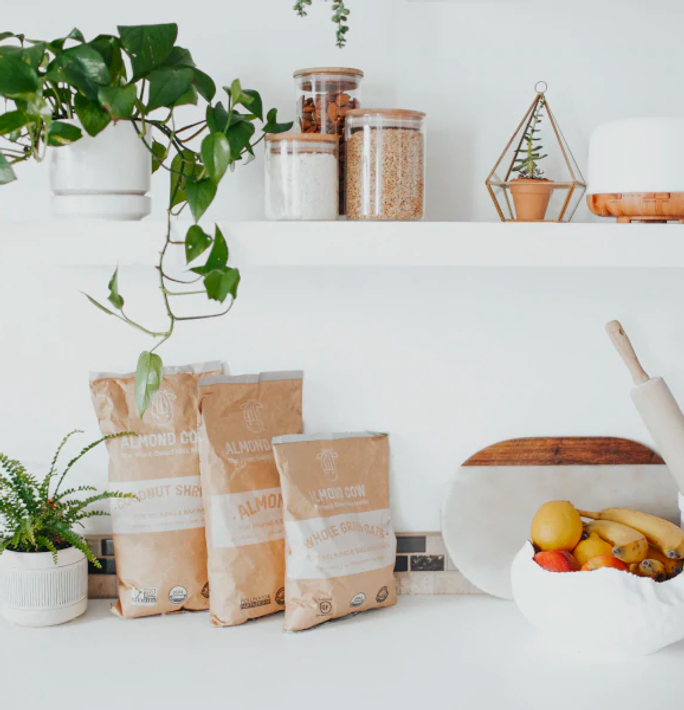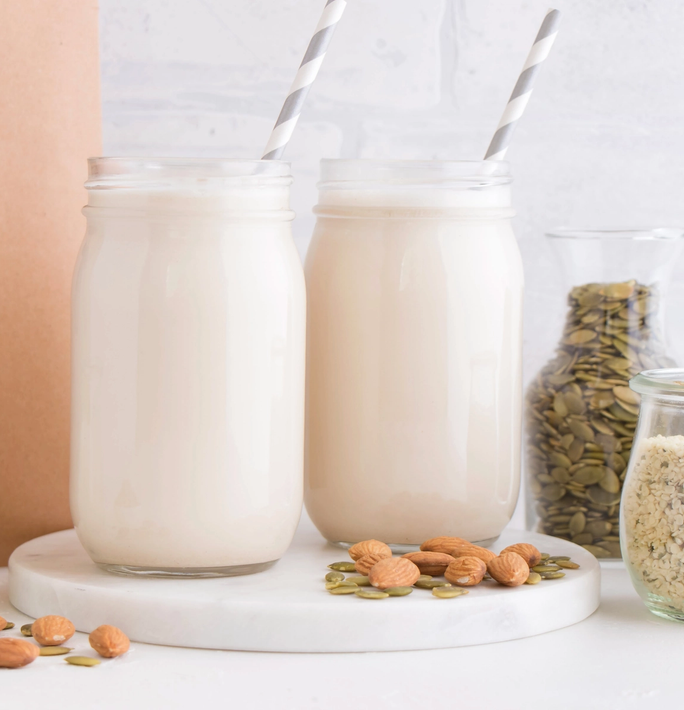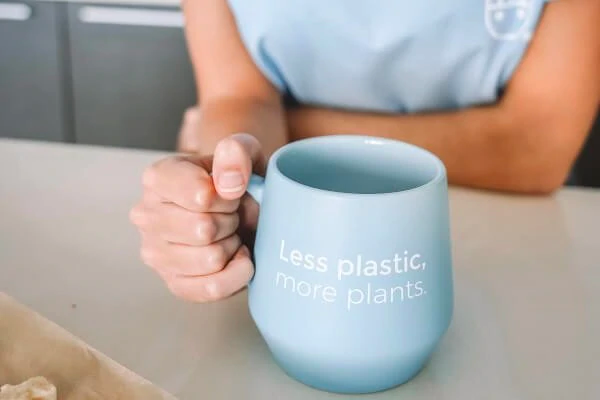
Eco-Friendly Living: Embracing Sustainability with Plant Milk
4 Minutes
You don’t have to be vegetarian or lactose intolerant to prefer plant-based milks - many people opt for these alternative milks as a way to lower their carbon footprint. Plant-based milks are a sustainable option for environmentally-minded drinkers, and homemade versions are even more eco-friendly.
The Problem With Plastics
It’s been shown that plant-based milks are an environmentally friendly option because they use up fewer resources, like farmland and water, and produce fewer greenhouse gases during production than their alternatives. But buying plant-based milk at the store doesn’t completely solve the problem. Plastic containers (looking at you, shelf milk) also contribute to greenhouse gas emissions all along their supply chain:
Made from petroleum
Require natural gas use in the transportation process
All too often wind up in landfills or worse, in the ocean
Single-use plastics, as their name suggests, are not designed to be used more than once. These include everything from plastic forks to milk cartons and after they’re used, they’re much more likely to end up in a trash can than a recycling bin. Even if they are recycled...
According to the 2018 United States National Postconsumer Plastic Bottle Recycling Report, only 28.9% of all plastic bottles sold were actually recycled, including those for dairy and non-dairy milks. Plastics are a big problem, but they’re not the only offenders. Many non-dairy store-bought milks come in containers known as Tetra Paks rather than plastic. Tetra Pak containers are composed of raw materials rather than recycled materials, including 75% paperboard (made from wood), 20% polyethylene, and 5% aluminum foil. In 2018, Tetra Pak containers had just a 26% recycling rate.
Whether you recycle your plastics and Tetra Paks or not, their carbon footprint continues on long after you’re done using them. Dumping, incinerating, recycling, and even composting (for some plastics) all release carbon dioxide into the atmosphere.
So what’s an earth-loving alt-milk drinker gotta do to make a dent in this plastic problem? Reducing your plastic use is the name of the game and, at Almond Cow, we make that easier for you!

Sustainability of Homemade Milk
Making your own plant-based milk helps to bypass all those systems pumping more plastic - and Tetra Paks - into the world. Say goodbye to single use plastic cartons! Homemade alt-milk is all about reducing and reusing.
You only need a few simple things to make your own alt-milk, all of which will last you a long time and can be used over and over.
Reusable bags for buying bulk ingredients
Glass jugs or bottles for milk storage
Almond Cow, the ultimate reusable plant-based milk maker - designed specifically to make the process simple, easy, and eco-friendly.
Switching to plant-based milk with a nut milk maker like the Almond Cow helps reduce the amount of greenhouse gases entering the environment. For starters, you’re avoiding the plastic pipeline, which has environmental implications from start to finish. You’re also saving energy to actually make your milk. The Almond Cow uses a cold blend cycling system, which takes very little energy to make a cup of milk (0.01 kWh). That’s less energy than it takes to charge a regular smartphone!

Plastic Savings With Almond Cow
How many plastic packages you save with Almond Cow depends on how much you would normally use! But here's an example:
The typical US household uses 23 gallons of milk per year.
Most non-dairy milks come in smaller containers, like ½ gallons, so that's 46 plastic cartons.
Most families using the Almond Cow report using it about 2.5 times a week, which amounts to about 1.5 64-ounce containers/week of plant-based milk.
This means Almond Cow users regularly help keep approximately 80 64-ounce plastic or partially plastic containers out of our landfills or, less likely, recycling centers every year.

Sustainable Ingredients
At Almond Cow, we know sustainable ingredients are just as important as reducing plastic use. Sustainable farming practices ensure both plants and the soil they’re grown in are healthy, making it possible for us to enjoy these ingredients (and our world) for longer. That’s why we’ve partnered with organic farms and verified our ingredients are non-GMO and free of pesticide residues like glyphosate.
There’s been a lot of buzz lately about how almond milk is bad for bee populations, which is why our almonds come only from bee-friendly farms. Our farmers implement strategies to protect and foster the health of pollinators like bees and their practices have been verified and approved by The Pollinator Partnership. Bees have taken care of our crops and flowers for generations - we oughta be taking care of them, too!
Almond Cow Makes It Easy
Making the switch from store-bought to homemade plant-based milk used to be an intimidating process. Fortunately, Almond Cow is dedicated to making homemade plant-based milk hassle-free.
With Almond Cow, you can make plant-based milk from any nut, seed, or grain in just minutes. Keep it classic or drink outside the box. Or just throw everything in there! The options are endless and the process stays the same. Simply choose and add your ingredients, push start, pour and enjoy your milk. No time-consuming straining or messy cleanup required. Get started with Almond Cow and take part in the fight for environmental change, one jug at a time.
